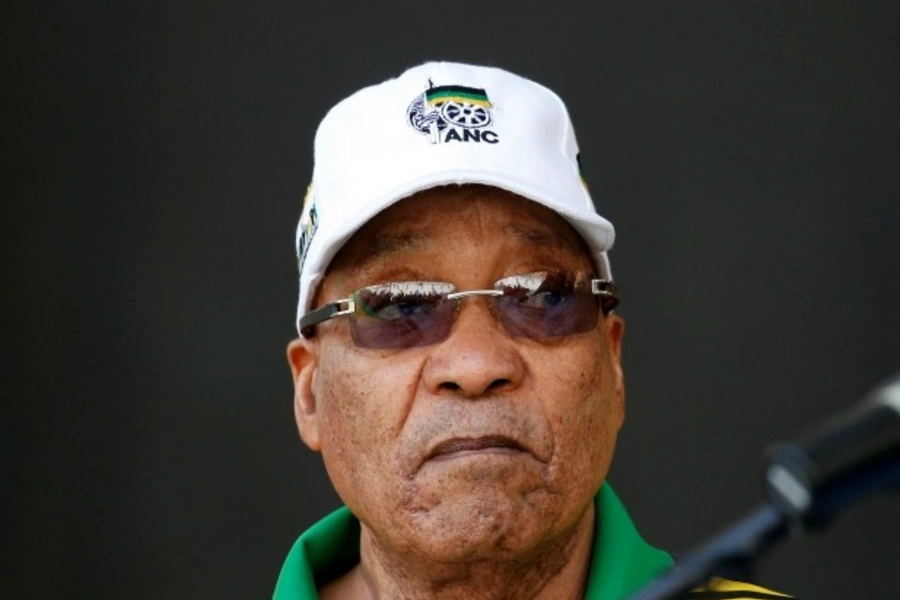The African National Congress’s (ANC) National Working Committee (NWC) decision to back South African President Jacob Zuma in the face of his widely unpopular cabinet reshuffle makes it unlikely that there will be sufficient ANC defections for a no-confidence measure to pass the National Assembly. It remains to be seen how the South African Communist Party (SACP) and the Congress of South African Trade Unions (COSATU) will respond to the NWC decision. At present, it appears that any genuine unity within the ANC over a future sense of direction is absent.
It is likely that until December, the ANC government will, in effect, be paralyzed. Such stagnation with regards to leadership and the decision making process in the South African government could produce incoherent economic policy, and further political influence and intrusion from the infamous Gupta brothers. These circumstances will be to the chagrin of the international financial markets. Standard & Poor’s downgrading of parts of South Africa’s sovereign debt may be followed by similar actions by the other rating agencies. There is a high probability that short-term investment in the economy could be stifled, as will economic growth. The national currency, the Rand (ZAR) has fallen by more than 11 percent. However, shares on the Johannesburg stock exchange rose – this was driven by shares in gold-mining companies and the weakening Rand. It remains to be see whether these trajectories will persist.
More on:
Following Zuma’s cabinet reshuffle last week, and his decision to fire well regarded Finance Minister Pravin Gordhan, the party leader and chief of state has been under intense pressure from all quarters of the government. The ANC’s political partners, the SACP and the COSATU have called for his resignation because he did not consult with them over the cabinet reshuffle. The absence of any consultation, as well as the dubious quality of certain members of his cabinet picks, has spurred division amongst the highest level of leadership within the ANC.
The backstory to the current political crisis includes issues of “state capture,” corruption, the preservation of the unity of the ANC, and the upcoming election of a new ANC leadership in December. Zuma is widely perceived to be corrupt, and his cronies, the Gupta brothers, are seen as exercising undue influence over the administration – otherwise known as “state capture.” The discord over Zuma within the ANC leadership, is a direct challenge to party cohesion, its principle of decision making by consensus, and to never “wash dirty laundry in public.” At least two, perhaps three, of the six most influential members of the ANC have aspirations for the party leadership in December. Zuma is seeking the election of his own outside candidate in December, most likely his ex-wife Nkosanza Dlamini-Zuma, to forestall prosecution for corruption when he is out of office.
Taking these circumstances together, the ANC is opting for party “unity” – at least until December. Hence, on April 4 the party’s NWC affirmed that it would not support Zuma’s removal from the party leadership now, and that it would strongly oppose a no-confidence vote in the National Assembly. There was mild criticism of Zuma for his failure to seek consultation over the cabinet reshuffle but also of those within the party who were publicly critical of him – a further display of party disunity. The bottom line for the ANC leadership is that Zuma, and his new cabinet picks, are locked-in until December. However, his opponents at higher levels of party leadership have maintained opposition to him. As yet, there is no sign of meaningful party unity.
More on:
 Online Store
Online Store
